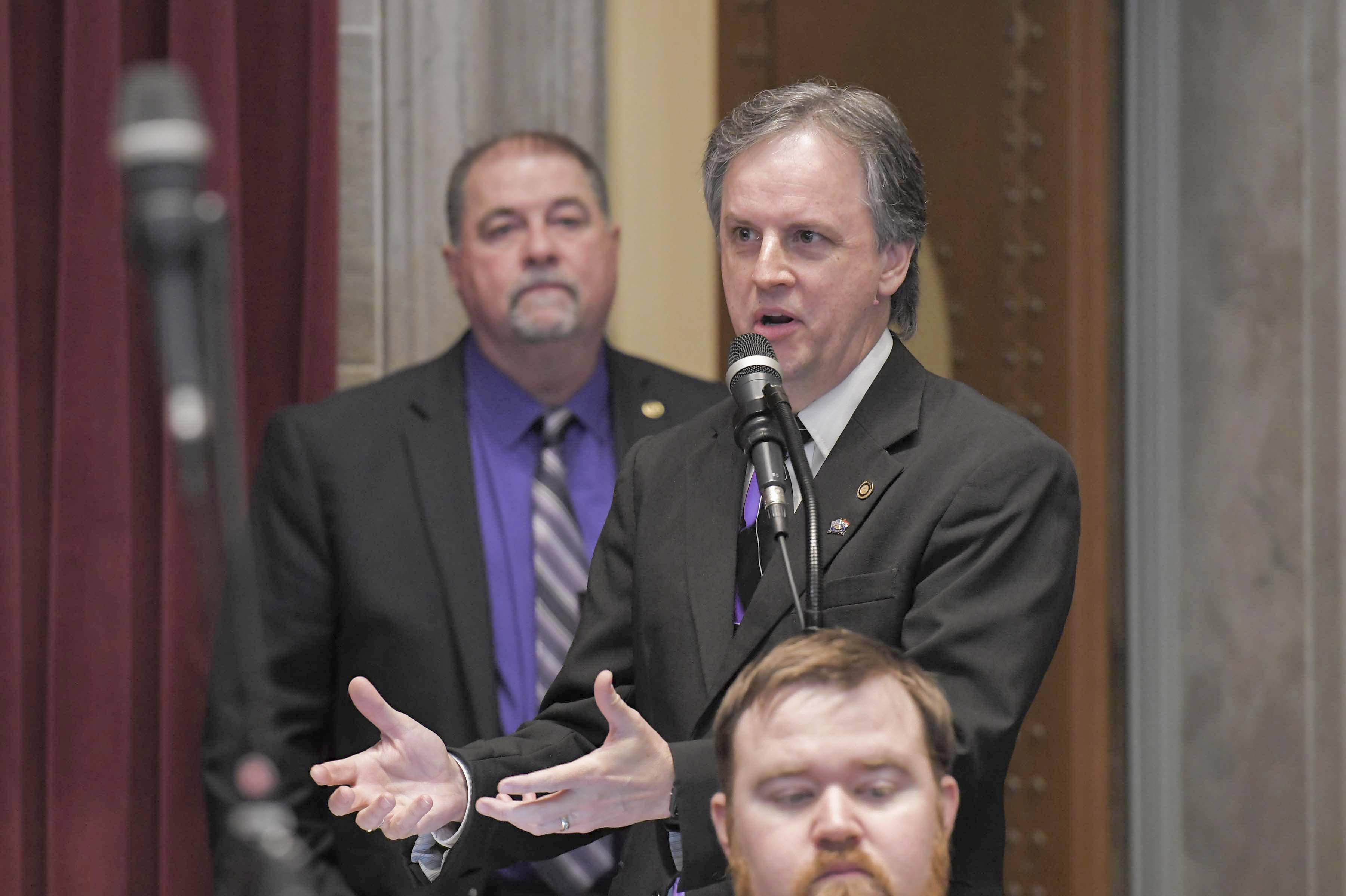JEFFERSON CITY, Mo. — Rep. J. Eggleston believes he has found the middle ground between increasing the burden on Missouri citizens and helping businesses compete with out-of-state online retailers.
The Republican lawmaker’s bill, HB 548, would reduce the top income tax rate by 0.14 percent on January 1, 2020, while implementing a 4.225 percent sales tax on internet transactions for businesses that meet the minimum threshold.
“The goal is to help our brick and mortar stores — from the big box stores all the way down to the mom-and-pop stores on Main Street — to better compete with their out-of-state internet counterparts without it being a fiscal drain to Missourians and without it being a big fiscal note or any decrease to revenue to both state and local government,” said Eggleston.
The measure was taken up and perfected by the Missouri House on Tuesday afternoon. In a 78-72 roll call vote, the measure gained initial approval by the body. HB 548 needs another vote, with 82 lawmakers voting in favor, to be sent to the Senate.
States collecting internet sale taxes from out-of-state retailers has been a much-debated issue in recent years. The legality of the issue was ruled on by the United States Supreme Court in June 2018. In South Dakota v. Wayfair, the nation’s high court determined that states could impose a tax on goods purchased from out-of-state sellers, even if the seller does not have a physical presence in the taxing state.
More than half of the states in America have implemented some sort of internet sales tax. There are several proposals making their way through the Missouri General Assembly which would implement some version of internet sales tax in the Show-Me State.
“For too long, Missouri has given out-of-state businesses a competitive advantage over our local mom and pop stores,” Amy Blouin, President & CEO of the Missouri Budget Project, said earlier this month. “And our communities have been missing out on much-needed resources to support the public services that help Missourians thrive.”
Under Eggleston’s proposal, sellers exceeding $100,000 in revenue from delivery of tangible personal property into Missouri or those with 200 or more transitions of tangible personal property into Missouri would remit 4.225 percent sales tax. The bill has no requirement for local tax remittance, only state.
Instituting an online sales tax in Missouri has gotten support from groups such as the Missouri Retailers Association, the Missouri Grocers Association, the Missouri Tire Industry Association, the Associated Industries of Missouri, and the Missouri Chamber of Commerce and Industry.
Ray McCarty from the Associated Industries of Missouri said they support internet sales tax in general but noted a few changes could improve the measure. For example, the 200 transaction standard could be problematic if a business is selling 250 items for $1.
But the measure received bipartisan pushback on the House floor, with opponents arguing it was just a tax increase on citizens. Rep. Maria Chappell Nadal argued an internet sales tax will put a strain on individuals on a fixed income.
Eggleston countered the argument, noting that the bill would also reduce income tax rates as way not to increase the overall tax burden on Missourians.
“We have started it off with estimates from experts who think they know how much more we will get from the internet, so we have modeled the income tax cut to mirror that,” said Eggleston. “It should be revenue neutral. But if it is off, we have a mechanism in the bill for two years after it passes to adjust those income tax rates, higher or lower, depending on if the internet sales tax generates more or less than the estimate.”
In an effort to be revenue neutral, the measure reduces the top income tax rate by an additional 0.14 percent on January 1, 2020. For the next two years, the tax rate will be adjusted, either up or down, based on sales tax revenue received. For every $40 million remitted more than a 4 percent increase in sales tax from the previous year, income taxes will be reduced by 0.05 percent. For every $40 million of sales tax received fails to equal a 4 percent increase from the previous year, incomes taxes will be increased by 0.05 percent.
The income tax cut provision has drawn some scrutiny from those who argue that the numbers don’t accurately reflect estimates for internet sales tax revenue. The Missouri Budget project completed an analysis of the bill which, not taking into account the correcting mechanism, projected a net loss of $74.23 million to general revenue.
“HB 548 would make Missouri’s tax structure more unfair, shortchange education funding, and jeopardize the resources our communities need to prosper. Instead of a bill like HB 548, with more special interest tax giveaways that Missouri can’t afford, Missourians need the legislature to enact a straightforward Wayfair Fix that would help stabilize the budget and level the playing field for local businesses without making our state’s revenue even more volatile,” said Blouin. “It’s past time for Missouri to enact a straight-forward Wayfair Fix to stabilize the budget, level the playing field for Missouri businesses, and help our communities prosper, but HB 548 doesn’t do that.”
In a committee hearing, the Missouri Budget Project, the American Association of Retired Persons, the Missouri National Education Association, and the Civic Council of Greater Kansas City testified in opposition.

Alisha Shurr was a reporter for The Missouri Times and The Missouri Times Magazine. She joined The Missouri Times in January 2018 after working as a copy editor for her hometown newspaper in Southern Oregon. Alisha is a graduate of Kansas State University.








